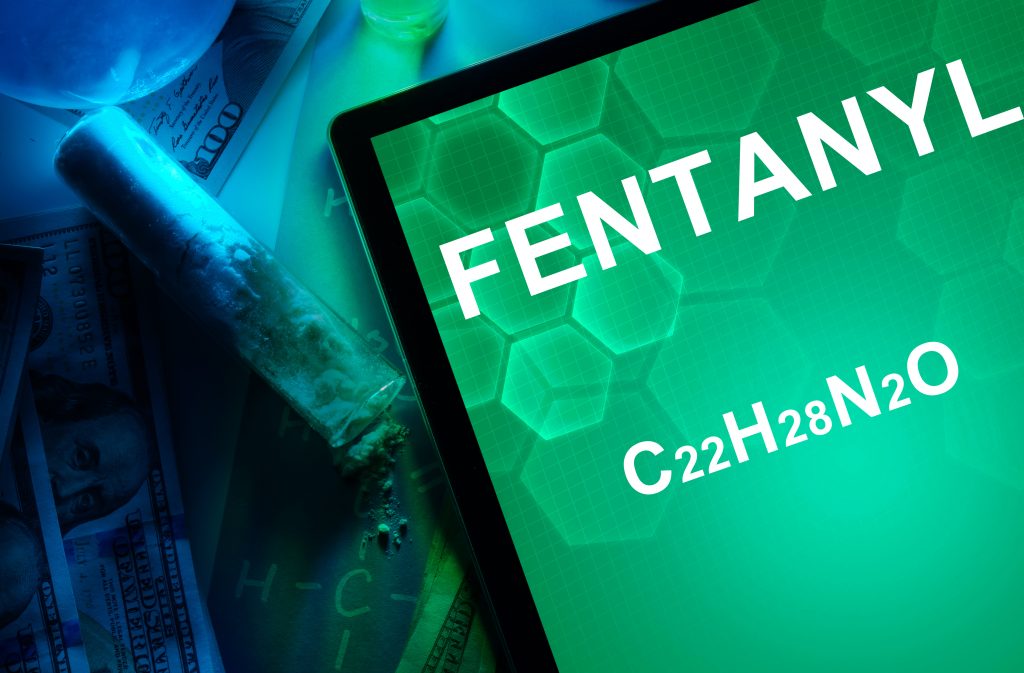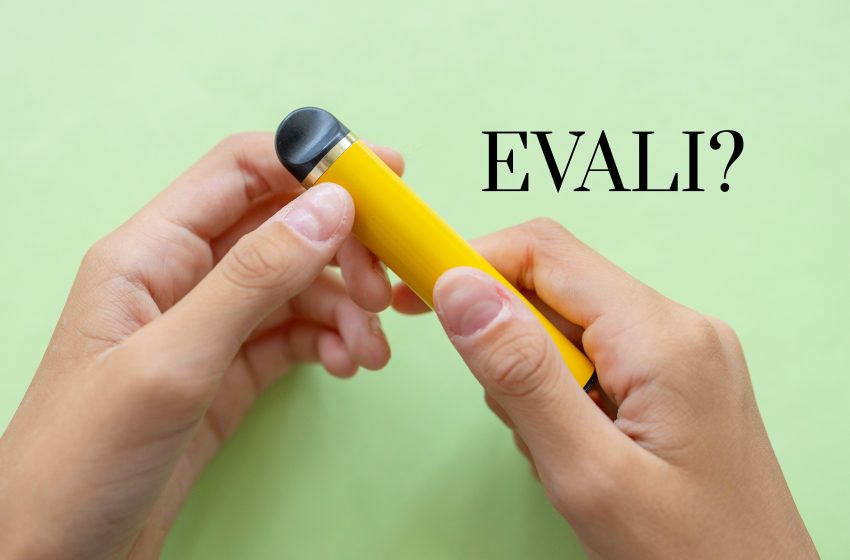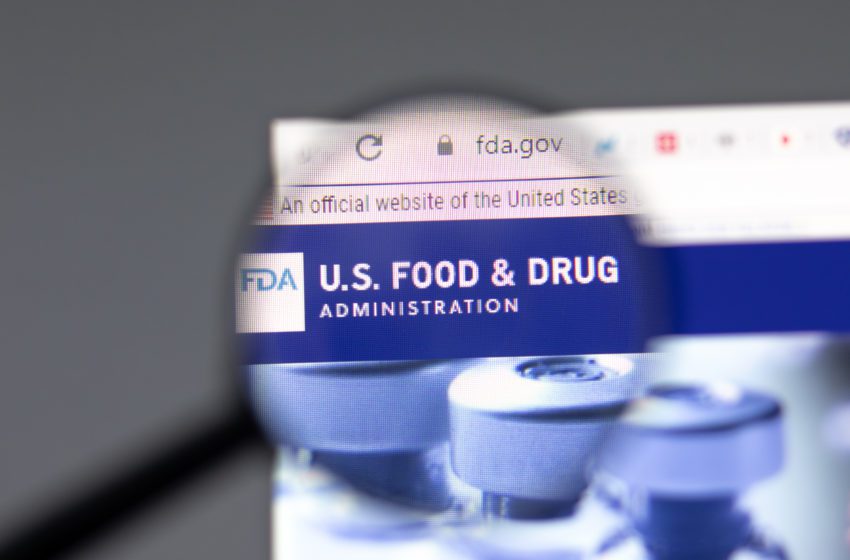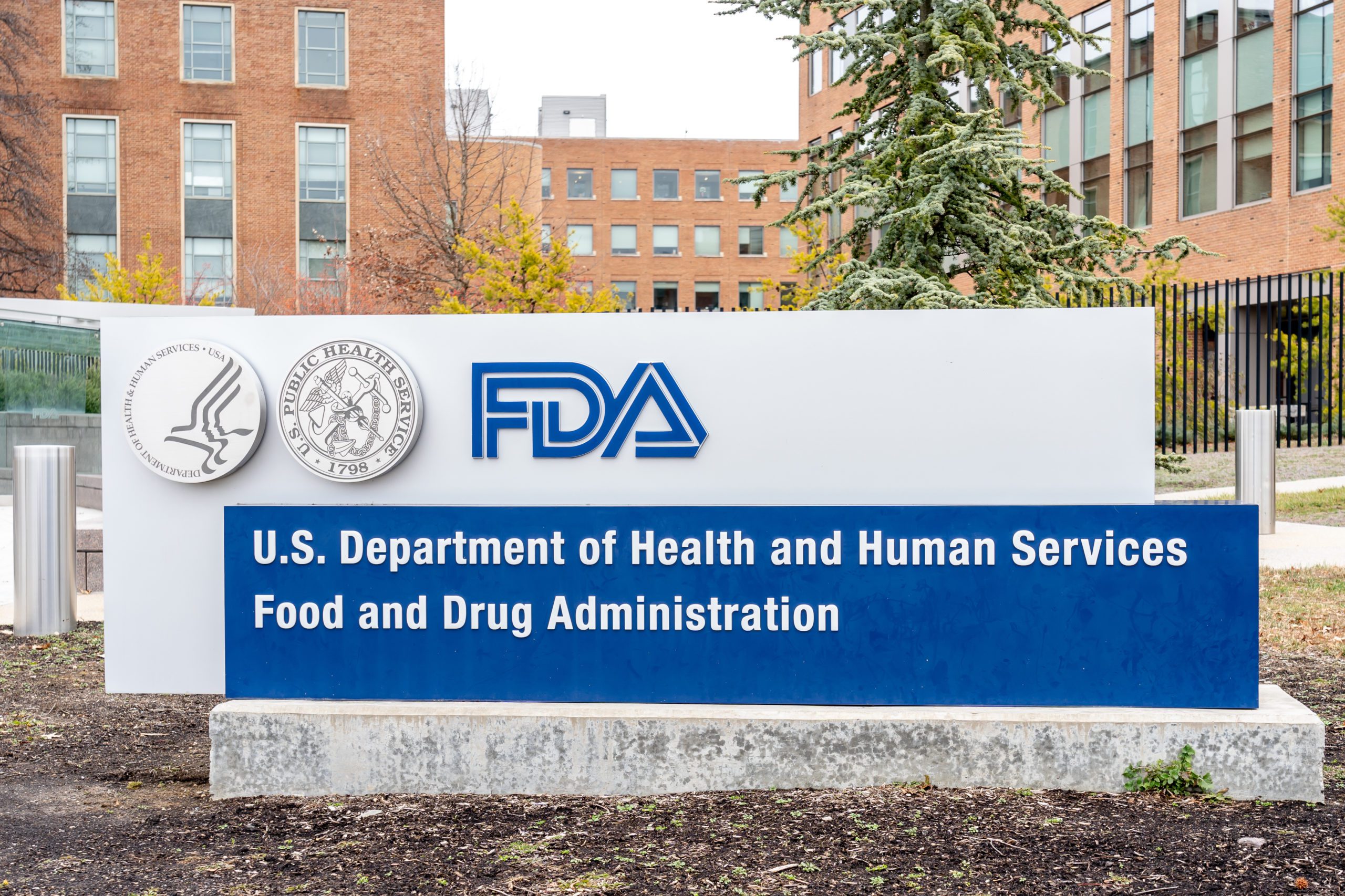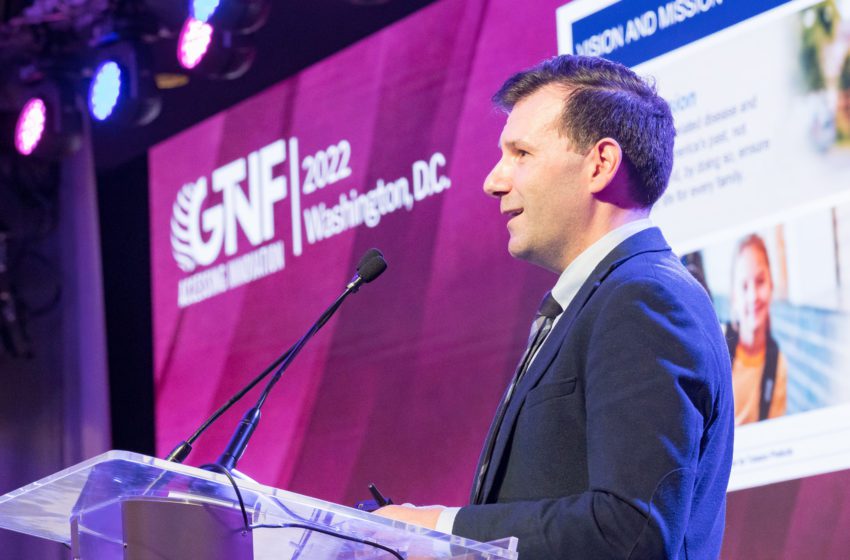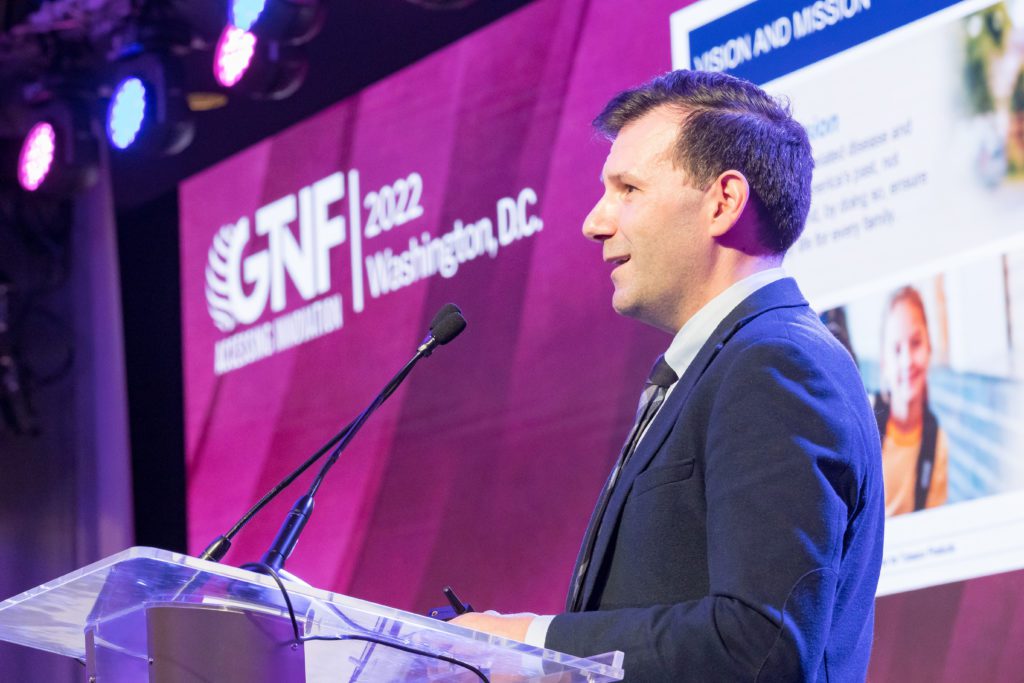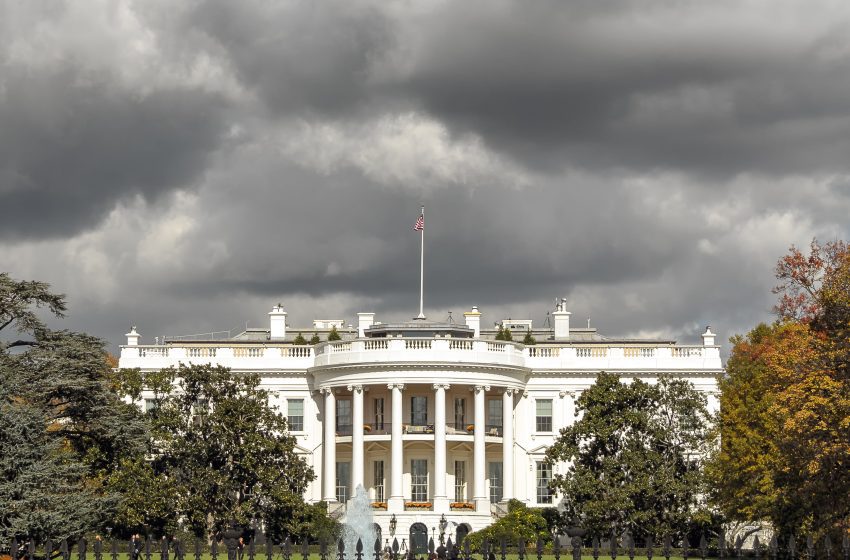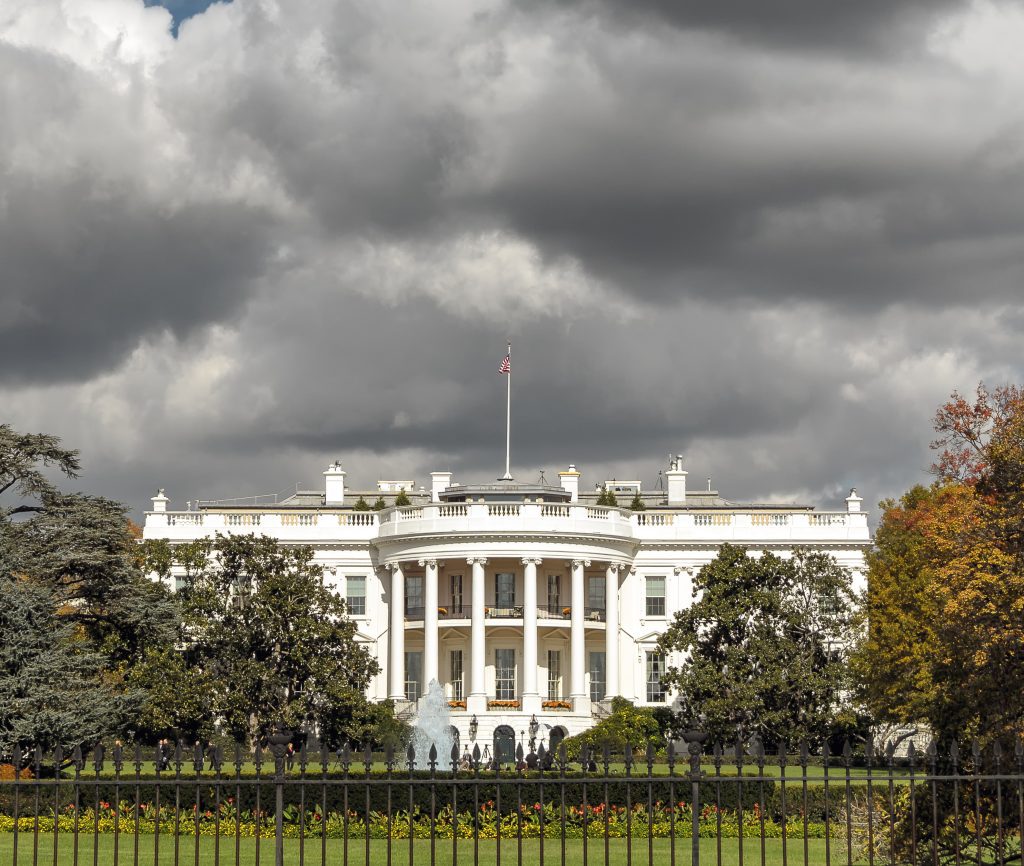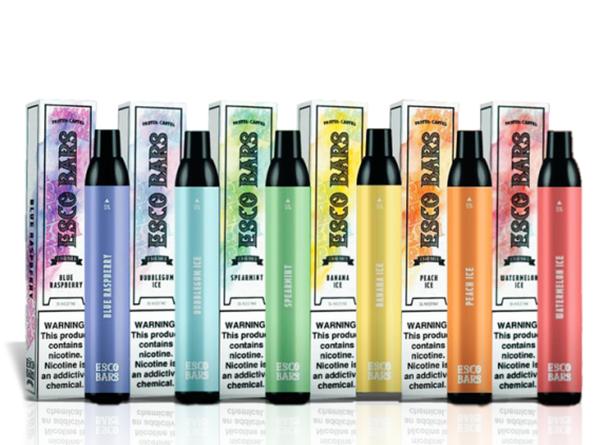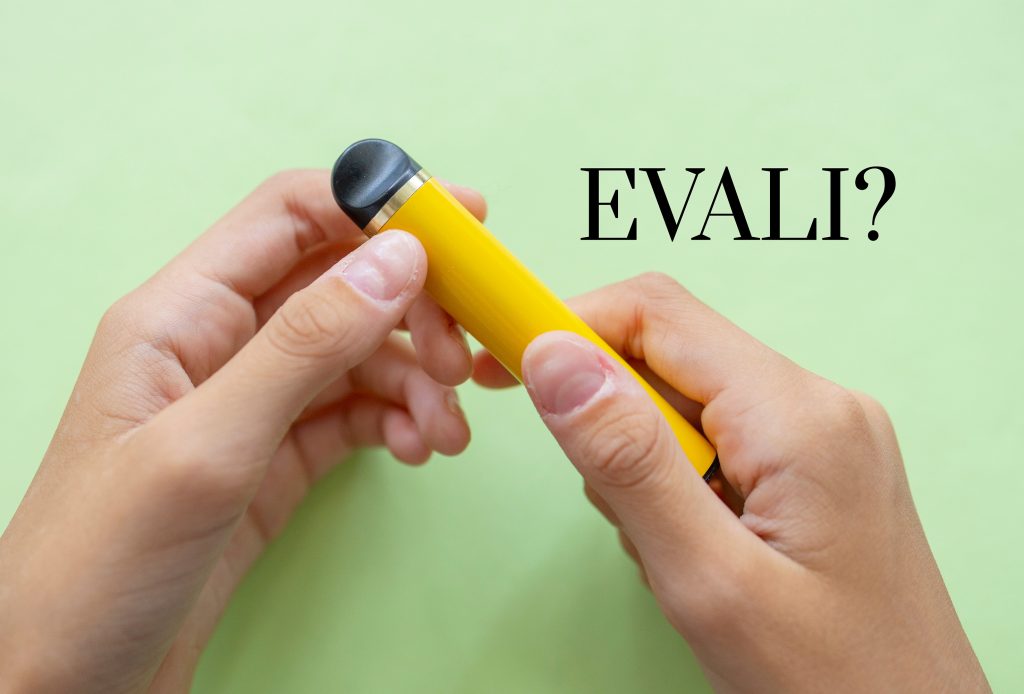
Fentanyl misinformation could come with consequences much worse than those experienced with EVALI.
By Timothy S. Donahue
Earlier this year, media reports began to circulate that a dangerous trend was beginning to emerge in the vaping industry: the proliferation of fentanyl-laced vapes. “This lethal combination of the potent synthetic opioid fentanyl and electronic cigarettes has raised serious concerns among health experts, law enforcement agencies and the general public,” wrote PharmChek, a drug abuse data source.
The first report of fentanyl-laced vaping products appeared in September 2019, when the U.S. Drug Enforcement Administration (DEA) San Diego division was contacted by local authorities regarding a suspected fentanyl overdose death. The roommate of the deceased, who admitted to vaping fentanyl regularly, told agents there was fentanyl and possibly other drugs located in their shared residence as well as fentanyl-laced “vape” tanks, according to the DEA. The San Diego County Medical Examiner reports that this was the first case in which they had found fentanyl in vape pens.
The vaping devices were not sold in any store. They were not marketed as fentanyl vape pens. The products were adulterated products that were then sold on the black market, according to the DEA. Media reports at the time did not mention that vapes were altered illegally and instead blamed the nicotine vaping industry for the contaminated devices.
During the Next Generation Nicotine Delivery 2023 conference held in Miami in June, Tony Abboud, executive director of the Vapor Technology Association (VTA), said that vaping industry veterans may remember something similar in vaping’s recent past that resembles the fentanyl crisis.
In August 2019, an Illinois man succumbed in a hospital to a mysterious lung disease caused by a vaping product. Soon after, the U.S. Centers for Disease Control and Prevention (CDC) reported the initial instance of what it called e-cigarette or vaping product use-associated lung injury (EVALI). The number of cases hit its peak in September before dropping off through February 2020, at which point there were 2,807 reports and 68 deaths.
Experts believe that one of the primary causes of the EVALI outbreak was vitamin E acetate, which had been added to some vaping products as a thinner. Additionally, many cases included tetrahydrocannabinol (THC)-containing products, not nicotine vaping products. Neither the CDC nor the U.S. Food and Drug Administration challenged the disinformation being disseminated by media outlets and anti-nicotine groups blaming nicotine e-cigarettes for the EVALI crisis. It nearly decimated the vaping industry.
EVALI and the false reporting surrounding its cause boosted misinformation surrounding nicotine vaping products. A study led by researchers at the American Cancer Society at the time showed that perceptions of e-cigarettes as being “more harmful” than cigarettes by adults in the United States more than doubled between 2019 and 2020 and that perceptions of e-cigarettes as “less harmful” declined between 2018 and 2020 when the EVALI concern was at its peak.
It wasn’t until late October 2019 that any government organization stated publicly that nicotine vaping products were not the cause of EVALI. Abboud warned conference attendees that if the e-cigarette industry doesn’t react differently to the misinformation surrounding nicotine vaping and illicit fentanyl-laced vaping products, the industry may not survive.
“The misinformation that went along with the EVALI crisis had a traumatic impact not just on businesses but on consumers’ perceptions about vaping products in general. And it was driven largely by the media,” explained Abboud. “It was on the media every single day …. The most important thing, obviously, at this time, was for our regulatory bodies to figure out and speak clearly about what was causing the problem. That did not occur in the manner that it should have occurred.”
The false link between nicotine vaping products and EVALI was also hijacked by anti-nicotine advocates, such as Matthew L. Myers, who was with the Campaign for Tobacco-Free Kids at the time, and Michael Bloomberg, the billionaire philanthropist and financial backer of anti-vaping organizations. The day after the CDC EVALI announcement, Myers and Bloomberg hit the airwaves talking about flavored vaping products and their commitment to spend $160 million to remove flavored vaping products from the market. Flavors attract kids, and EVALI would kill them, the group claimed.
“What they said was frankly unconscionable because they leveraged the [then] current EVALI crisis that did not have anything to do with flavored nicotine products to their benefit. The impact of this kind of narrative led to the next day when President Trump announced [d] his ban on all flavors,” said Abboud. “At this point, we knew that the industry was facing somewhat of an existential crisis because they were talking about removing a huge segment of the market and a larger segment of the independent vaping industry. And that would have dramatic repercussions down the road.
“We immediately started acting. We had to get on TV to explain what was really going on with vitamin E acetate to make clear that this was an illicit THC issue. We had to frame the issue in terms of public health. We also had to create the issue in terms of jobs. But we had to do more than that. We had to launch a public affairs campaign that made clear what was at stake with this policy decision that was made in this vacuum without frankly any sort of regulatory process behind it.”
After several e-cigarette advocacy organizations sat down with President Trump to discuss flavors, the FDA only banned flavors in closed pod systems. Disposables were still going to avoid enforcement. Many in the industry say this FDA decision was the catalyst to the current issues of flavors and youth use. The FDA has not authorized a flavor other than tobacco. “But in that, the industry was largely preserved, and companies were able to stay in business,” said Abboud.

The next false flag
On May 18, Tom Price, a former U.S. Secretary of Health and Human Services, published an op-ed on FoxNews.com where he started a narrative in the media about fentanyl-laced vaping products being imported from China in disposable vaping products. He offers no evidence of China’s involvement in the importation of fentanyl-laced vaping products other than China making most of the e-cigarette hardware.
“Reports suggest these Chinese manufacturers are also boosting disposable vapes with illegal levels of nicotine to increase addiction levels among our children. But while added nicotine makes e-cigarettes more addictive for our kids, adding fentanyl to them can make them deadly,” Price wrote. “Given the extent that China funnels fentanyl into America, it shouldn’t come as much of a surprise that reports indicate officials have found some of these vapes laced with fentanyl.”
There is no denying that fentanyl is a public health crisis. People are dying from overdosing on fentanyl because the U.S. has a huge problem in keeping illicit drugs out of the country, said Abboud. However, the “out-of-the-blue op-ed” tying fentanyl to Chinese-made disposable flavored vaping products is a new approach and new message.
Abboud then revealed a series of op-eds that were published in June all making the same points. “It was quickly [brought up again] in June by the former GOP National Committee member from Nevada who makes almost identical statements, ‘flavored disposable vaping products are dangerous, but those coming from communist China are especially dangerous because they include fentanyl,’” said Abboud. Now, according to the op-ed, “kids are experimenting with vaping fentanyl. You see what’s happening here. That was June 10. Then media reports began talking about fentanyl vapes from Mexico. On June 11, a Georgia State senator penned an op-ed (that toed the same line).”
The unsubstantiated claims that e-cigarettes contain fentanyl are increasing in frequency. Curiously, these cases have involved illicit THC vape pens or other devices—not disposables and not e-cigarettes purchased from reputable manufacturers, according to Abboud. Yet, a bill has now been introduced in the U.S. House filed by a member of Congress from the state of Florida that would remove flavored disposable vaping products from the market because of the fentanyl crisis. This call was amplified by a Florida-based retail association that made the same false claims about nicotine e-cigarettes.
The unsubstantiated association between vaping and fentanyl is showing up in regulatory conversations as well, but interestingly, only disposables are implicated even though the organic media stories have involved all device types, according to Abboud. He said the first place that he found the association made in a regulatory context was when R.J. Reynolds filed a citizen petition on Feb. 6, 2023, asking for the FDA to use its enforcement powers to remove flavored disposable vaping products from the market because “illicit market-supplied vaping products are being laced with products such as fentanyl, which is lethal in doses as small as 2 milligrams.” A few days later, a bill was introduced in Congress to force the FDA to act on removing flavored disposables.
In March, Robert Califf, commissioner of the FDA, testified before the House Appropriations Committee. “He is questioned by Representative Newhouse, and the question posed was ‘Can you tell us about your plan to get these potentially dangerous Chinese products off of the market and out of the hands of kids, and can you tell us what companies that you have (taken off the market) and that these products don’t contain harmful contents like fentanyl?’ There really hadn’t been much reporting on this issue before this, but (Califf) was asked this question,” said Abboud.
Califf told Congress that “There’s recently been some publicity,” and “it’s no surprise but of great concern to me that fentanyl may be showing up now in vaping products, [that] it was just a matter of time” and that the United States needs an all-of-government approach to protect kids from this threat.
The VTA reviewed all the stories that it could find that mentioned vaping and fentanyl. Abboud confirmed that the device in Reynolds’ petition was not disposable. The devices that were confiscated were vape pens, an open system and a pod device. The authorities, in that case, said that they found that the devices were altered when fentanyl or heroin was injected through the device into the e-liquid. All the other fentanyl reports involved cartridge-style vape pens or THC products. “Of all the cases that we looked at, only one of them even mentioned a disposable, a flavored disposable,” said Abboud. “Perhaps it’s time to ask the question ‘Why are we seeing this manufactured media narrative that is not supported by any publicly available data?’ Creating unfounded fears among consumers about fentanyl will harm the entire vaping industry and will make a mockery of the concept of tobacco harm reduction altogether.”
The ultimate issue is that misinformation, as it relates to e-cigarettes, drives people back to smoking. The FDA has also talked about this publicly. CTP Director Brian King has expressed concerns over the misinformation surrounding vaping products, and he understands that there are misperceptions as it relates to nicotine and many products. However, the vaping industry is once again in a position where disinformation is driving a false narrative that will spin out of control, according to Abboud.
“My perspective is that this is an intentional false flag. If, as asserted, millions and millions of illegally imported disposable vapes are coming into the country laced with fentanyl, where’s the outbreak? This is not something that would just ‘not’ be reported on. And as I’ve said, we looked at the reports, and there is just slim evidence that there is any connection between the fentanyl epidemic and nicotine vaping,” explains Abboud. “The problem, of course, is that we have illicit THC vapes [in] the United States that are the real issue. And given how unforgiving the Chinese government is toward illicit drugs, does anybody really believe [Chinese manufacturers] are going to make THC vapes adulterated with fentanyl and take the risk of being imprisoned or worse in their own country?”
It seems like deja vu all over again. Abboud said that if the vaping industry allows a manufactured crisis that associates fentanyl with nicotine vaping devices to take hold, the entire industry will never recover in the eyes of the consumer. “As soon as you say vaping and fentanyl, consumers will not distinguish between disposables and open systems. They will reduce their risk, and for many, that will, unfortunately, mean a return to smoking,” said Abboud. “As with EVALI, we have hyped and overgeneralized headlines in the media talking about vaping. We have had direct calls for eliminating flavored nicotine in vaping and specifically flavored disposable products.
“And we have regulators who contribute to this misleading narrative, specifically the statement made by the FDA commissioner in front of Congress. The bottom line is that I don’t think this industry gets three strikes. EVALI, strike one. I think this [fentanyl in vape devices] narrative, if it takes hold, the way it appears to be being pushed to take hold is strike two. The vaping industry won’t get a third at-bat.”
